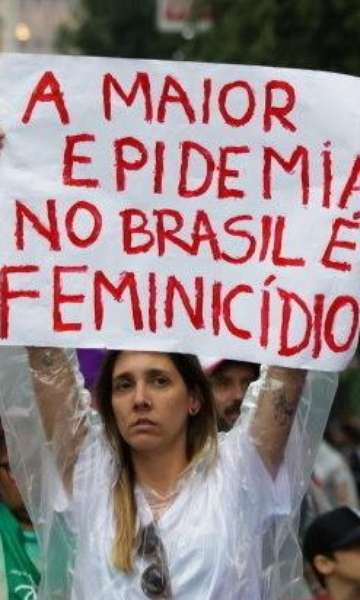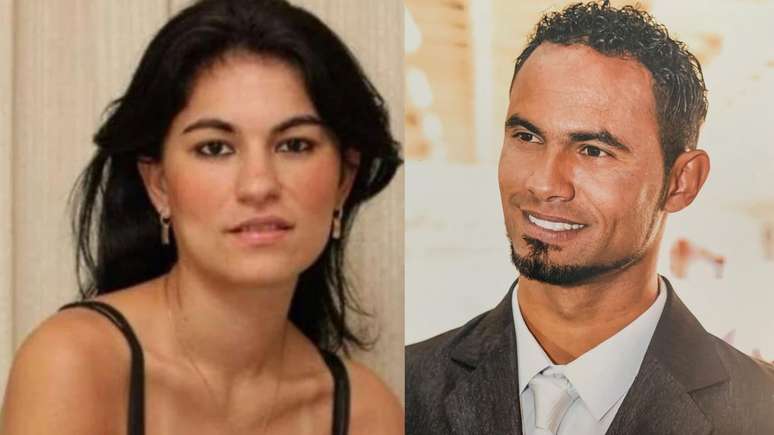In March 2013, Bruno Fernandes was sentenced to more than 20 years in prison for the murder of the model; he is on probation
Summary
Femicide is the murder of a woman because of her sex. The case of Eliza Samudio’s murder illustrates a culture of violence against women in Brazil.
Femicide is the murder of a woman because of her gender, that is, because she is a woman. In Brazil, the Law on Femicide (Law 13.104/15), which modifies the Penal Code (Decree-Law 2.848/40), establishes femicide as a qualifying circumstance for the crime of murder and includes it in the list of atrocious crimes. Thus, while the sentence for the crime of simple murder ranges from 6 to 20 years, for femicide it ranges from 12 to 30 years.

What is femicide?
This crime is the result of a culture of violence that perpetuates the dehumanization and objectification of women, creating an environment conducive to acts of aggression and even murder. And the story of model Eliza Samudio, killed by former goalkeeper Bruno Fernandes de Souza, illustrates this sequence of violence that can culminate in femicide.
This Thursday, the 26th, Netflix will release the documentary “The Invisible Victim: The Eliza Samudio Case”, remembering the case that shocked Brazil. Remember the crime:
Bruno forced Eliza to have an abortion, which she did not do.
Eliza and Bruno met in 2009 at a party in Rio de Janeiro. They had sex and, some time later, she discovered that she was pregnant by the athlete. According to the investigation, Eliza told the then Flamengo goalkeeper about her pregnancy and he forced her to have an abortion, but Eliza did not do so.
He reported Bruno and his friends for kidnapping, assault and threats
In October, she went to the police to file a complaint against Bruno and two of his friends, who had threatened to kill her if she did not have an abortion. According to her statement at the time, Bruno was still holding her in a private prison and physically assaulted her. He also allegedly forced Eliza to ingest abortifacients.
Eliza then took a urine test, which confirmed the presence of abortive chemicals. However, it took authorities about eight months to perform the analysis: the result came after the woman was already dead.
He asked for a precautionary measure and the appeal was rejected
After witnessing the incident, Eliza also requested an urgent protective measure, which was denied by a judge from the domestic violence court. The judge argued that the Maria da Penha law did not apply to Eliza’s case, since she did not have a “stable emotional relationship” with her aggressor.
He asked for recognition of paternity
Eliza’s son was born in February 2010, when she was living in São Paulo with friends. After the baby was born, she filed a lawsuit to have Bruno recognized as the paternity.
She was kidnapped by her accomplices
According to the investigation, Eliza told a friend that she was going to Rio de Janeiro to meet Bruno, for a possible reconciliation. Days later, she was forcibly taken by Macarrão, Bruno’s friend, and the player’s underage cousin, Jorge Luiz Rosa, to the former goalkeeper’s farm in Esmeraldas, Minas Gerais, where she was locked with her son in a room. There she was watched by another cousin of Bruno, Sérgio Rosa Sales.
Eliza was murdered and her body was never found
About four days later, Eliza and her son were removed from the room, with the excuse that they would be taken to see an apartment in Belo Horizonte, the capital of Minas Gerais. However, Macarrão and two of Bruno’s cousins took her to a house in Vespasiano (MG), where she would be killed.
According to Jorge Rosa’s statement to the police, Eliza was strangled and dismembered in the home of former police officer Marcos Aparecido dos Santos, known as Bola. After committing the crime, the former police officer nevertheless handed over the remains of Eliza’s body to the dogs.
On June 24, 2010, the police received an anonymous tip about the case, stating that Eliza had been killed and her clothes burned in Esmeraldas. The police searched Bruno’s house, but found nothing. Eliza’s son, named Bruninho, was found with unknown people in Ribeirão das Neves.
The case could have gone unnoticed, but the attacker is famous
Bruno’s fame has prevented the femicide case from going unnoticed by the public, something that does not happen so often with other femicide cases in Brazil. According to a survey by the Brazilian Forum of Public Security (FBSP), from 2015 to 2023, 10.6 thousand women have been victims of femicide in the country.
Last year in Brazil, 1.46 thousand women were victims of this crime, an increase of 1.6% compared to 2022.
A 2022 United Nations report on gender-based violence found that intimate partners or other family members committed nearly 6 in 10 murders of women worldwide in 2021, a year in which an estimated 45,000 women and girls worldwide were killed by their intimate partners or family members.
The battle in court
In July 2010, the Minas Gerais court issued seven temporary arrest warrants and ordered the temporary hospitalization of the minor who testified in the case. In Rio de Janeiro, two more arrest warrants were issued against Bruno and Macarrão, targets in both states. They surrendered in Rio.
In March 2013, Bruno Fernandes was sentenced to more than 20 years in prison for Eliza’s murder. In 2018, he was released to semi-open conditions and has been on parole since January 2023.
Freedom
Bruno also played for some soccer teams after serving his sentence in a racially segregated regime. He currently works as a furniture delivery boy for a furniture store located in the municipality of Rio das Ostras, on the coast of Rio de Janeiro.
On September 13, he was filmed working in his new profession. The video has had repercussions on social media.
Source: Terra
Rose James is a Gossipify movie and series reviewer known for her in-depth analysis and unique perspective on the latest releases. With a background in film studies, she provides engaging and informative reviews, and keeps readers up to date with industry trends and emerging talents.







